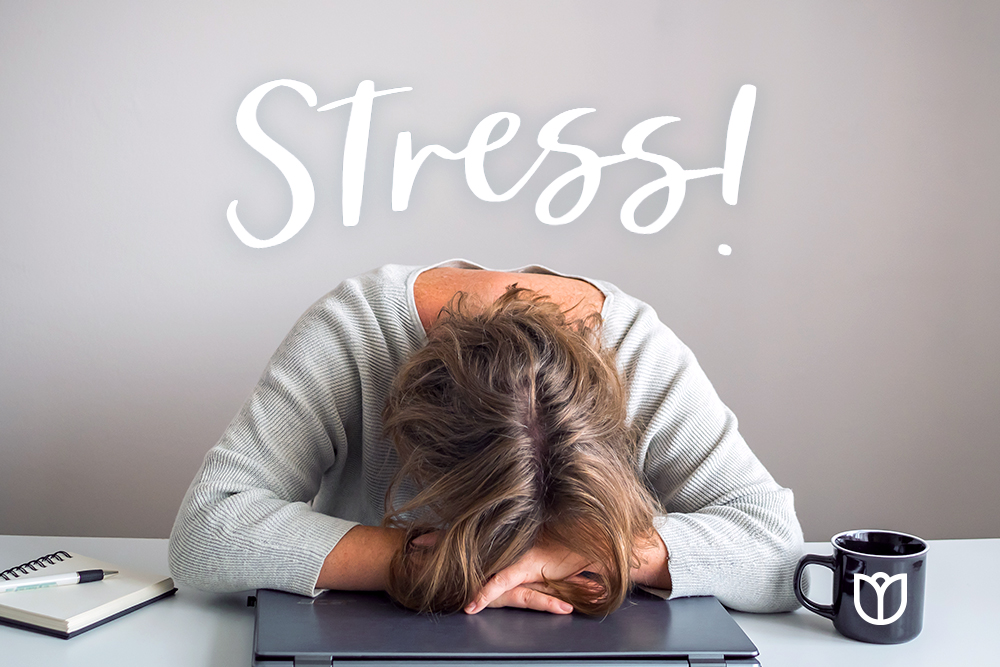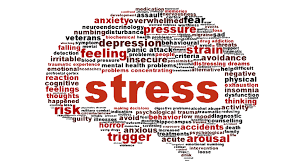
RELIEVE STRESS WITH TEN MANAGEMENT STRATEGIES
Relieve Stress Management Strategies
Relieve Stress Management Strategies — Stress often reveals itself through various physical symptoms, serving as important warning signs for individuals to monitor and address their stress levels. These indicators encompass a broad spectrum of sensations that can profoundly affect one’s well-being. Among the physical manifestations of stress are feelings of chest heaviness and an increased heart rate. These symptoms are part of the body’s natural “fight or flight” response when it anticipates potential danger. As a result, the chest may feel tight or heavy, and the heart rate can become noticeably faster, reflecting the body’s readiness to confront or evade a perceived threat.
In addition to chest sensations, stress often leads to muscle tension, particularly in the shoulders, neck, and back. This muscular strain may cause discomfort and, in some cases, chronic pain. Stress can also trigger headaches of varying intensity, from mild, persistent discomfort to severe migraine-like sensations. Furthermore, bruxism, characterized by teeth grinding and jaw clenching, is frequently associated with stress, potentially leading to dental issues and jaw pain. It’s a clear signal that stress can significantly impact our physical well-being.
In response to stress, individuals might experience shortness of breath, often linked to shallow or rapid breathing as the body seeks to increase oxygen intake in high-stress situations. This can create feelings of breathlessness, contributing to the overall stress experience. Dizziness and lightheadedness are also common stress-related symptoms, resulting from changes in blood flow during stressful episodes. Moreover, persistent stress can lead to overwhelming fatigue, affecting both physical and mental energy levels. It can cause feelings of anxiety, encompassing worries, unease, restlessness, or a looming sense of impending doom. Additionally, long-term stress may contribute to or worsen depressive symptoms, including enduring sadness, a loss of interest in previously enjoyable activities, and a sense of hopelessness. Recognizing these emotional and physical signs of stress is crucial for managing its impact on overall well-being.
To mitigate the effects of stress on mental and physical health, individuals should adopt effective stress management strategies. These may include mindfulness practices, relaxation techniques, regular physical activity, and seeking support from friends, family, or professionals. By being proactive in recognizing and addressing these symptoms, individuals can safeguard their well-being and work towards a healthier, more balanced life.
.
.
.
.
Relieve Stress Management Strategies
UNDERSTANDING THE DISCOVERY OF BIOLOGICAL STRESS
Biological stress might seem like a modern concept, but it wasn’t until the late 1950s that endocrinologist Hans Selye first identified and documented stress. While stress symptoms existed long before Selye’s work, his discoveries paved the way for new research that has since helped countless individuals cope with stress. In this article, we’ll explore ten effective ways to relieve stress.
.
.
TEN EFFECTIVE WAYS TO RELIEVE STRESS
.
1. LISTEM TO SOOTHING MUSIC
When you find yourself overwhelmed by stress, taking a break and listening to calming music can work wonders. Relaxing tunes have a positive impact on both the brain and the body. They can help lower blood pressure and reduce cortisol, a stress-related hormone. For example, the melodic strains of cello master Yo-Yo Ma playing Bach can have a soothing effect. If classical music isn’t your preference, consider listening to the tranquil sounds of ocean waves or nature, as they too can induce relaxation.
.
.
2. CONNECT WITH A FRIEND
During stressful times, don’t hesitate to take a break and call a friend. Sharing your concerns and problems with a trusted friend can provide much-needed emotional support. Maintaining good relationships with friends and loved ones is essential for a healthy lifestyle, especially when facing stress. A reassuring conversation, even if it’s just for a brief moment, can help put things into perspective.
.
.
3. ENGAGE IN POSITIVE SELF-TALK
In situations where reaching out to a friend may not be feasible, engaging in self-talk can be a valuable alternative. Don’t worry about appearing eccentric; talk to yourself calmly about why you’re stressed, what steps you need to take to address the issue at hand, and most importantly, reassure yourself that everything will be okay.
.
.
4. ADOPT A HEALTHY DIET
Stress levels are closely connected to your diet. When under duress, people often forget to eat well and resort to sugary or fatty snacks for a quick energy boost. To manage stress effectively, steer clear of sugary snacks and plan your meals ahead. Opt for fruits and vegetables, and consider incorporating fish rich in omega-3 fatty acids into your diet. These choices have been shown to alleviate stress symptoms.
.
.
5. EMBRACE LAUGHTER
Laughter is a natural stress reliever. It triggers the release of endorphins, which enhance your mood and reduce stress-related hormones like cortisol and adrenaline. Laughing can trick your nervous system into making you feel happier. Consider watching humorous content, such as classic Monty Python sketches, to lighten your mood and reduce stress.
.
.
6. SIP ON GREEN TEA
If you’re looking for an alternative to coffee or energy drinks, green tea is an excellent choice. It contains significantly less caffeine than coffee and offers a range of health benefits, including antioxidants. Green tea also contains theanine, an amino acid known for its calming effect on the nervous system.
.
.
7. PRACTICE MINDFULLNESS
In addition to immediate stress relief techniques, there are long-term strategies that can be even more effective. “Mindfulness” is a central concept in meditative and somatic approaches to mental health. It has gained popularity in recent years, with practices like yoga, tai chi, meditation, and Pilates incorporating physical and mental exercises that prevent stress from becoming a problem.
.
.
8. STAY ACTIVE, EVEN BRIEFLY
Exercise doesn’t have to involve strenuous workouts at the gym. A short walk around the office or taking a moment to stretch during a work break can offer immediate relief during stressful situations. Physical activity releases endorphins, which can boost your mood almost instantly.
.
.
9. PRIORITIZE QUALITY SLEEP
Stress can lead to sleep disturbances, and in turn, sleep deprivation can exacerbate stress. This creates a harmful cycle that disrupts the balance of your brain and body, worsening over time. Prioritize getting the recommended seven to eight hours of sleep each night. To improve your sleep quality, turn off electronic devices earlier, dim the lights, and allow yourself time to unwind before bedtime. Quality sleep is one of the most effective ways to manage stress.
.
.
10. BREATHE DEEPLY
The age-old advice to “take a deep breath” may sound cliché, but it holds true when it comes to managing stress. Deliberate breathing is an essential practice in meditation, with Buddhist monks being conscious of their breath for centuries. For a simple three- to five-minute exercise, sit upright in your chair with your feet flat on the floor and your hands resting on your knees. Breathe deeply and slowly, focusing on your expanding chest and your lungs as you inhale and exhale. Deep breathing oxygenates your blood, helps center your body, and clears your mind. It’s a valuable tool to alleviate stress.
.
.
Relieve Stress Management Strategies
LEARN MORE ABOUT STRESS RELIEF
.
Stress is an inevitable part of life, but that doesn’t mean you should ignore it. Unmanaged stress can lead to potentially serious physical and mental health problems. The good news is that, in many cases, stress is manageable. With some patience and the implementation of useful strategies, you can reduce your stress levels. Whether you’re dealing with family stress or workplace stress, remember that addressing and managing stress is essential for your overall well-being.
As stress relief techniques may vary from person to person, it’s essential to explore and find what works best for you. Experiment with different methods and consider seeking professional guidance if stress becomes overwhelming. By effectively managing stress, you can lead a happier, healthier life.
.
.
Relieve Stress Management Strategies
Written by Certifed Sexological Bodyworker / Somatic Sexologist Aleena Aspley.
Aleena’s bodywork studio is located in North Brisbane and is by appointment only.
Bodywork Directory — www.AleenaAspley.com
Women — www.YoniWhisperer.com.au
Men — www.LingamWhisperer.com.au
Couples — www.TantricWhisperer.com
.
.
Relieve Stress Management Strategies







